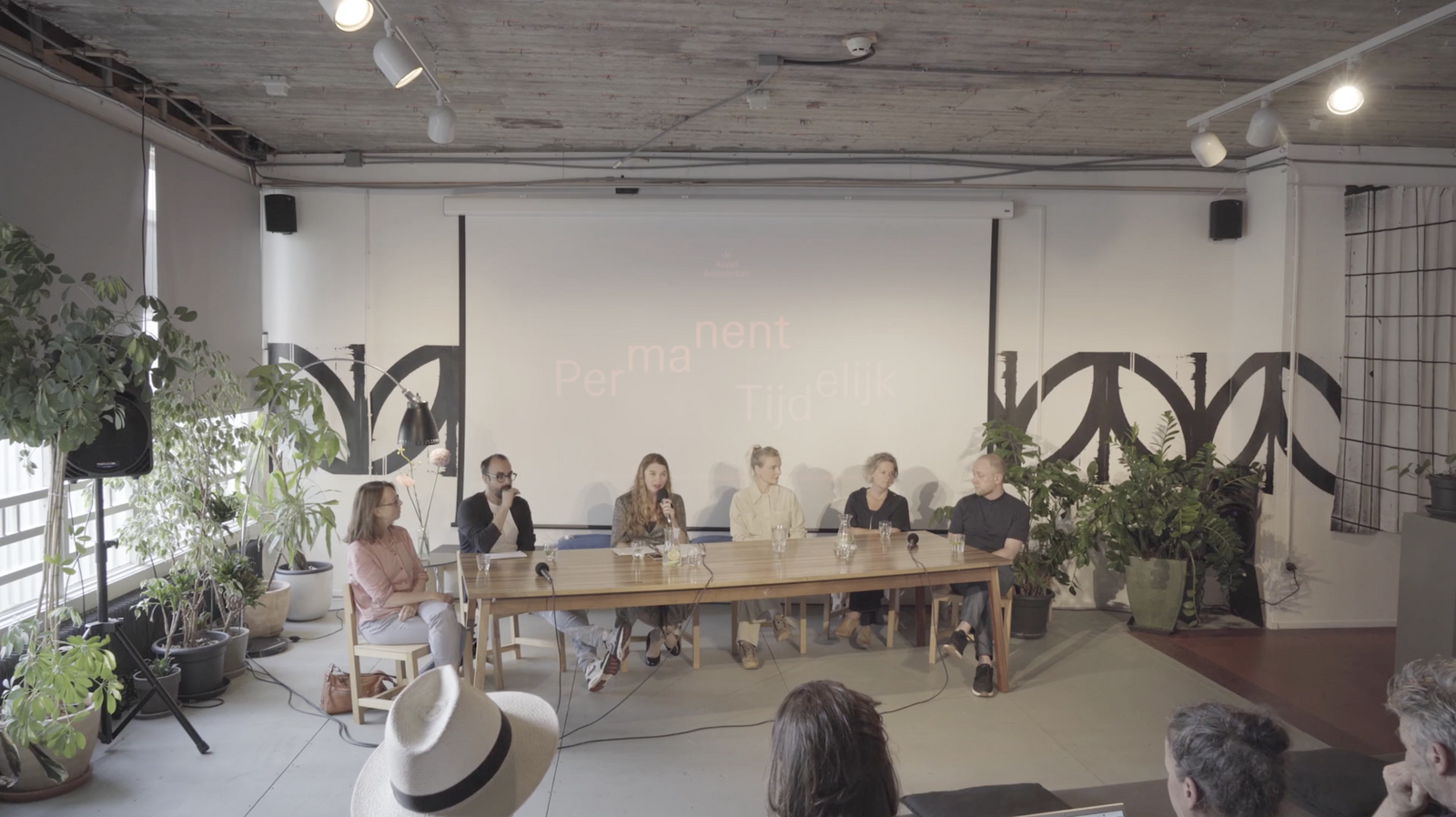
Since five years de Appel again has a remarkable home: Broedplaats Lely, a brutalistic building in a diffuse part of town, where the accelerated effects of the gentrification of the surrounding are clearly visible.
As an institution de Appel is part of this ongoing temporality. And now that the period of this 'temporary' situation will be even shorter, it is time to talk about the precarity this enhances. To be able to accommodate more demands, for example the creation of strong ties with the public, and to involve them in a long term programme often is a challenge.
The current situation isn't unfamiliar in the art scene, but it seems as if it becomes more extensive, and that is why this is the moment to start the conversation. It is time to talk about the responsibilities of a withdrawing (local and national) government as to the possibilities of making art within cities such as Amsterdam.
On the one hand the temporality and the ability to adapt is discussed as a strength – perhaps as an affirmation of the deprecated concept of 'avant garde'. But it also reveals a structural problem for art institutions of a scale such as de Appel: they can count on less and less space, understanding and support. Infrastructures are being liberalised, which modifies fund flows to to the arts and her stages, en the question of how the arts should adapt to all these changes becomes more urgent.
Other questions that rise are: what does the extension of the system mean to renewal and innovation, and what opportunities are there for art stages outside of Basis Infrastructuur (Bis)? How can art institutions truly invest in ties with the audience and and the tissue of the city when all precarity remains? What does it entail to build up a diverse workforce when the loans must remain low to be able to meet all expectations? It is demanded from art institutions to be visible, with a strong, substantive programme, but at the same time they are being stripped off when left to local or national politics.
Ann Demeester, the former director of de Appel, will be the moderator of this evening, and start the conversation with notable speakers about the multiple expectations and to articulate and discuss the links openly.
This evening will be in Dutch. There is no need to subscribe, everyone is welcome. After the roundtable conversation, de KolenkitKas will provide a meal (costs: € 12,50).
Programme
5:00pm – Walk-in
5:30pm until 7:00pm – Roundtable conversation
7:00pm until 11:30pm – Drinks
Guest speakers
Araf Ahmadali, director art and culture at the muncipality of Amsterdam
Marjo van Schaik, creative producer, strategic advisor and researcher
Eelco van der Lingen, director of the Mondriaan Fund
Heske ten Cate, artistic director of Nest, art institute for contemporary art in The Hague
Barbara Visser, artist and documentary maker
With submitted contributions from
Valentijn Byvanck, director of Marres and vice-chair of the supervisory board of De Zaak Nu
Paula Lambeck, director of Kunstpunt Groningen and member of the supervisory board of De Zaak Nu
Josien Pieterse, founder and director of Framer Framed